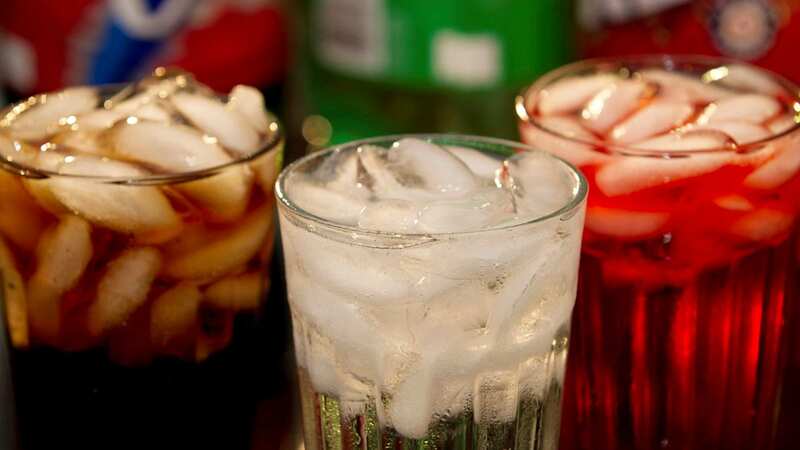Less than a can of fizzy pop a day 'increases irregular heartbeat risk'

Drinking less than one can of fizzy pop a day can increase the risk of irregular heart rhythms, warns a new study.
Atrial fibrillation, known as AFib, is a condition which causes a person's heart to beat irregularly and is linked with a five-fold increased chance of stroke. More than 12 million people are expected to have AFib by 2030, according to the American Heart Association. And now, a new study has revealed that consuming sweetened drinks may be a contributing factor.
A team of scientists analysed data of 201,856 adults between the age of 37 and 73 who enrolled in the UK Biobank between 2006 and 2010. When the participants enrolled in the study, they were all free of AFib but by the end of the 10-year follow-up period finishing in 2020, there were 9,362 cases of AFib.
Analysis of the data found that people who drank two or more litres of artificially sweetened beverages a week, such as Diet Coke or Lucozade, had a 20 per cent increased risk of atrial fibrillation. That breaks down to just over six cans a week. Meanwhile, people who consumed similar amounts of sugar-sweetened drinks such as juice had a 10 per cent higher risk of atrial fibrillation.
People who drank sugar-sweetened beverages rather than artificially sweetened beverages were found to have a higher overall sugar intake with drinking one less litre of pure fruit juice each week associated with an eight per cent lower risk of irregular heart rhythms.
 Surprising symptom that 40% of women suffer weeks before a heart attack
Surprising symptom that 40% of women suffer weeks before a heart attack
The results, published in the journal Circulation: Arrhythmia and Electrophysiology, also revealed that participants who consumed more artificially sweetened beverages were more likely to be female, younger, have Type 2 diabetes, and have a higher body mass index (BMI). Participants who consumed more sugar-sweetened beverages were more likely to be male, younger, have heart disease, have a lower socioeconomic status, and have a higher BMI.
Lead author Dr Ningjian Wang, a researcher in Shanghai, China, said: "Our study's findings cannot definitively conclude that one beverage poses more health risk than another, due to the complexity of our diets and because some people may drink more than one type of beverage. However, based on these findings, we can recommend that people reduce or even avoid artificially sweetened and sugar-sweetened beverages whenever possible.
"Do not take it for granted that drinking low-sugar and low-calorie artificially sweetened beverages is healthy, as it may pose potential health risks." Dr Wang added that while studies have previously linked consuming sweetened beverages to Type 2 diabetes and obesity, this is the first time an association has been found with atrial fibrillation.
"These novel findings on the relationships between atrial fibrillation risk and artificially sweetened beverages and sugar-sweetened beverages like pure fruit juice may prompt the development of new prevention strategies, such as considering decreasing sweetened drinks to help improve heart health."
The researchers also evaluated whether a genetic susceptibility to AFib was a factor in the association with sweetened drinks. They found no link here but did conclude that smoking may have affected the risk as smokers who drank more than two litres of sweetened beverages had a 31 per cent higher chance of developing AFib.
Meanwhile, no significant increase was noted for former smokers or those who have never smoked. Dr Wang said that further research will be needed to explain the link between sweetened drinks and irregular heart rhythms but noted that initial studies suggest it may be linked to insulin.
"While the mechanisms linking sweetened beverages and atrial fibrillation risk are still unclear, there are several possible explanations, including insulin resistance and the body's response to different sweeteners," she explained.
"We need to look more closely at the artificial sweeteners in food and beverages, which are usually sucralose, aspartame, saccharin, and acesulfame."
Dr Penny M. Kris-Etherton, a nutrition committee member at the American Heart Association, said the findings are surprising given that two litres of artificially sweetened beverages per week only equates to 'one 12-ounce diet soda per day'. However, she advised people to limit their consumption of sugar and artificially sweetened beverages insisting that water is the best choice, especially for children.
"We still need more research on these beverages to confirm these findings and to fully understand all the health consequences on heart disease and other health conditions," Dr Kris-Etherton said. "But in the meantime, water is the best choice, and, based on this study, no- and low-calorie sweetened beverages should be limited or avoided."
 Rita Ora draws attention as she shows off huge new tattoo across her ribcage
Rita Ora draws attention as she shows off huge new tattoo across her ribcage
The American Heart Association's 2016 dietary guidelines recommend a limited intake of artificially sweetened beverages and sugar-sweetened beverages, which include fruit juice, coffee drinks, and sweetened teas. The organisation also notes that healthy drink options include water and fat-free or low-fat milk, and encourages people to replace fruit juice which has added sugar with unsweetened fresh fruit juice, which is also recognised as one fruit serving in your five a day.
Read more similar news:
Comments:
comments powered by Disqus

































